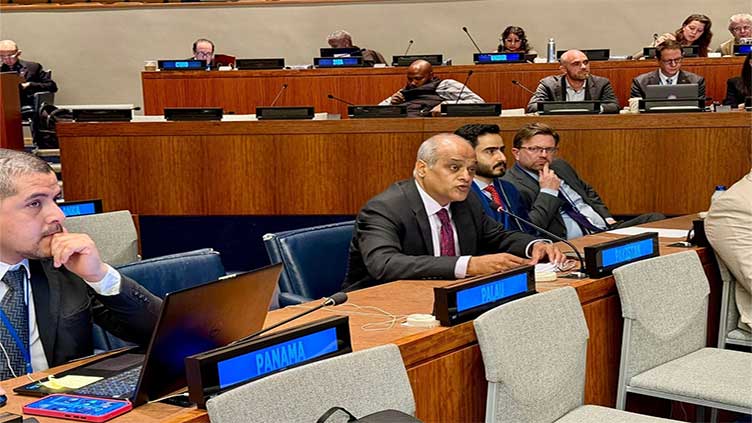Pakistan cautions that it will retaliate against India with more intensity if provoked again.

A senior Pakistani ambassador has cautioned India that it will retaliate with “greater ferocity and resolve” if provoked again, while highlighting the recent confrontations between the two South Asian states at the UN Conference on Disarmament in Geneva.
“South Asia necessitates a future characterised by cooperation rather than confrontation, not another crisis,” stated Ambassador Bilal Ahmad, Pakistan’s permanent representative to the UN offices in Geneva, during the 65-member forum established by the international community to negotiate arms control and disarmament agreements.
“If India chooses the path of aggression again, the consequences — and the responsibility — will lie entirely at its door,” he said, warning, “Pakistan will stand ready to meet any Indian aggression at every escalating level with greater ferocity and resolve”.
Ambassador Bilal Ahmad stated that Pakistan will comply with the ceasefire, emphasising its consistent preference for constructive engagement, result-oriented dialogue, and the peaceful resolution of all unresolved disputes, including the Jammu and Kashmir issue, in accordance with UN Security Council resolutions.
He asserted that India’s unlawful threats and application of force against a nuclear-capable neighbour, manifested in the Indian leadership’s revisionist stance—termed the “new normal”—constitute a significant threat to strategic stability in South Asia.
The Ambassador enumerated an increasing array of destabilising occurrences: India’s maritime nuclear arsenal deployment, its anti-satellite weapon tests, missile canisterization, and a transition towards a counterforce strategy.
These, he noted, were “not contours of credible minimum deterrence but preparation to project power far beyond South Asia.”
“For more than ten years,” Ambassador Bilal Ahmad stated, “Pakistan has cautioned this Conference regarding India’s hegemonic mentality and its unwillingness to coexist harmoniously with sovereign neighbors.” This mentality has intensified due to the prevailing Hindutva ideology, which seeks to revise history, alter demographics, and redefine geography.
He asserted that India’s recent acts were not isolated but rather indicative of a “strategic posture” that “flourishes on reckless overconfidence in military disparity,” propelled by “unrestrained breaches of international law,” “hate-driven populist rhetoric,” and “fantastical expert analyses.”
The envoy added, “No other nuclear-armed state exhibits such recklessness.” No nuclear-armed nation launches high-velocity, dual-capable missiles over international boundaries into the territory of another nuclear power.
The statement also highlighted that India invokes the terrorism bogey to mask its geopolitical ambitions of projecting regional power and hegemony, using military force as a coercive tool of state policy.
In this regard, Ambassador Bilal Ahmad expressed concern over international permissiveness toward India’s buildup, citing how export control regimes had “bent their rules,” giving India access to sensitive technologies while holding Pakistan to “phantom commitments divorced from strategic realities.”
He called upon states engaged in defence cooperation with India to understand and recognize the consequences that the weapons and technologies they transfer to India today may well be used tomorrow in acts of aggression against civilians and in violations of IHL (International Humanitarian Law).
Ambassador Ahmad called on the international community to uphold the UN Charter and support diplomacy over confrontation, stressing that “South Asia does not need another crisis. It requires a future shaped by cooperation, not confrontation.”
Reacting to Indian delegate’s reference to so-called “nuclear blackmail”, a Pakistani delegate said that such self-imposed claims are made to hide India’s own nuclear delinquency.